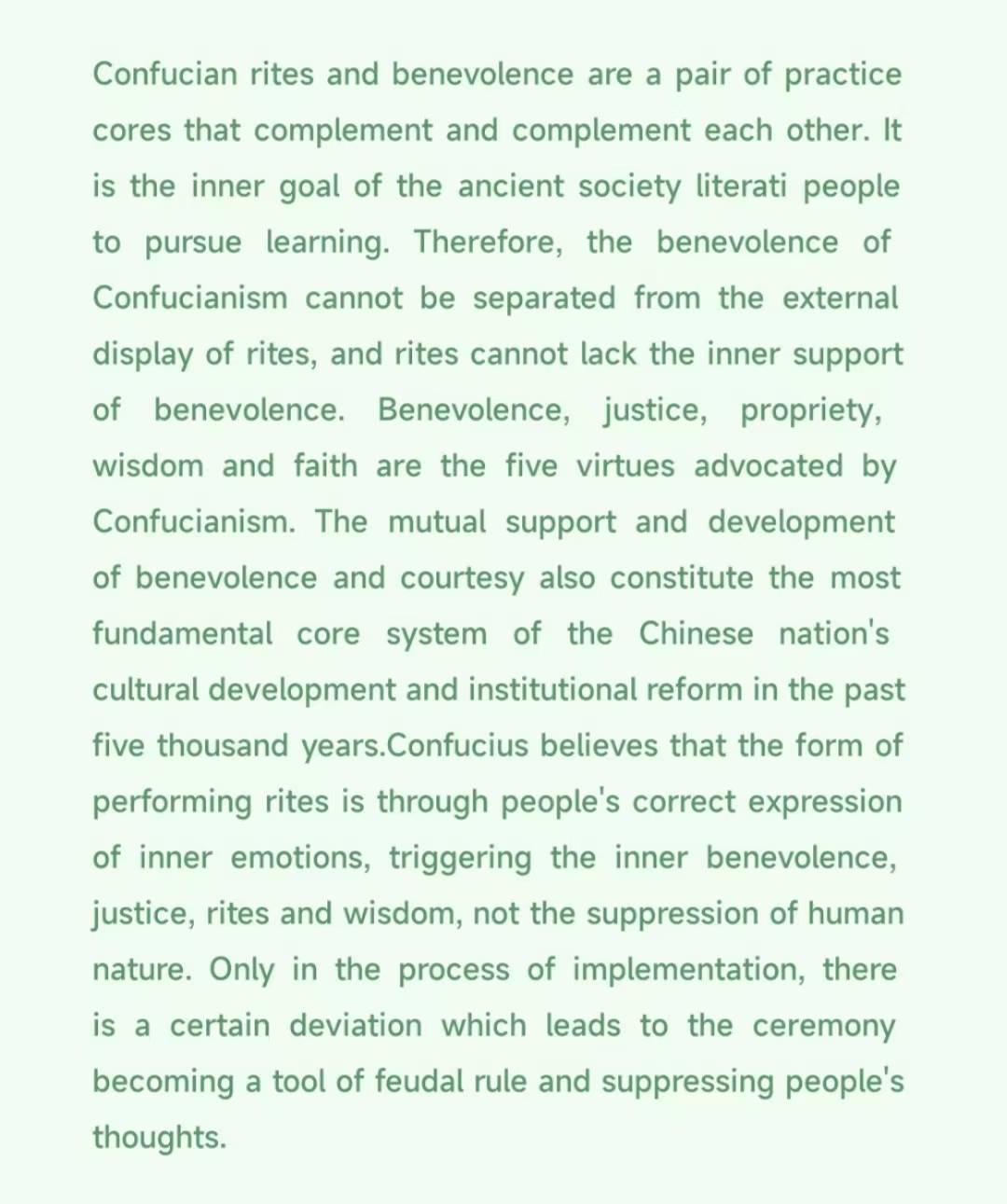1. What is "Freedom"? (on Kant's idea of Justice)
Kant believed that the real freedom refers to the free will of a person to act according to his own legislation, without being bound by natural laws in the sense of morality and money. Human rationality establishes the necessary laws of nature in terms of objects, but also limits their freedom as a result. In true currency, the same rationality of humans can be free from the constraints of natural laws, but act according to their consistent and universal laws of free will.
2. Why does the traditional Chinese society's economic and political structure need "Ritual"?
Rituals play a crucial role in traditional Chinese law. Ritual is the spiritual core of law and is inseparable. Under the common goal of maintaining feudal autocratic rule, they each performed their respective functions and complemented each other. As a symbol of traditional Chinese culture, ritual has been deeply rooted in the spiritual world of Chinese people and has been widely recognized. Its status and function are even beyond the law, becoming the supreme existence.
"Ritual" is actually a code of conduct generated by human interaction, or a social rule. Institutional economics believes that the system itself is voluntarily achieved and voluntarily observed through the interaction between people, and it is effective. Why? It's simple: an agreed result is a good result.
3. Maritime Countries and Continental Countries
The difference between maritime and continental countries is based on geographical and economic factors. The economies of maritime countries surrounded by the sea are often influenced by maritime activities such as trade, fishing, and navigation, while landlocked continental countries place greater emphasis on agriculture.
4. Why did the Hellenistic tradition in Western culture give rise to metaphysics and monotheism?
The Hellenistic tradition in Western culture stimulated the thinking beyond the material world and promoted the development of metaphysics. This philosophical trend leads individuals to go beyond sensory experience and seek a higher truth. At the same time, religious beliefs in the Hellenistic tradition laid the foundation for monotheism, focusing on a single god and emphasizing the order and unity of the universe.
5.Can we draw the conclusion that Confucius is in line with inhumanity (as suggested by Bertrand Russel on page 54)?
No,Russell's view that "Confucius is in line with inhumanity" is narrow and limited. This is a misunderstanding and an oversimplification of Confucian philosophy. Confucius did emphasize the importance of Li and social structure, but not at the expense of humanity or free will.
First of all, we must understand the Confucian thought of Li. In the concept of Confucius, Li not only a kind of form, but also a kind of norms and guidance for human emotions and behaviors. He believes that through the cultivation of Li, people can better control their desires and emotions, and achieve inner peace and social harmony.
Secondly, we should realize that Confucius' thought of Li or ritual is not to suppress people's emotions and desires, but to guide people to express and release their emotions correctly. In Confucius' thought, human emotions and desires are natural, but only through correct guidance and regulation can they be reasonably expressed and released in society.
Finally, we should understand the relationship between Confucius' thoughts of Li and individual freedom and spirit. In Confucius' concept, individual freedom and spirit are not suppressed or ignored, but better realized through the cultivation of Li. He believes that only when people can properly control their emotions and desires can they truly realize their self-worth and free spirit.





 您确定给 “
您确定给 “